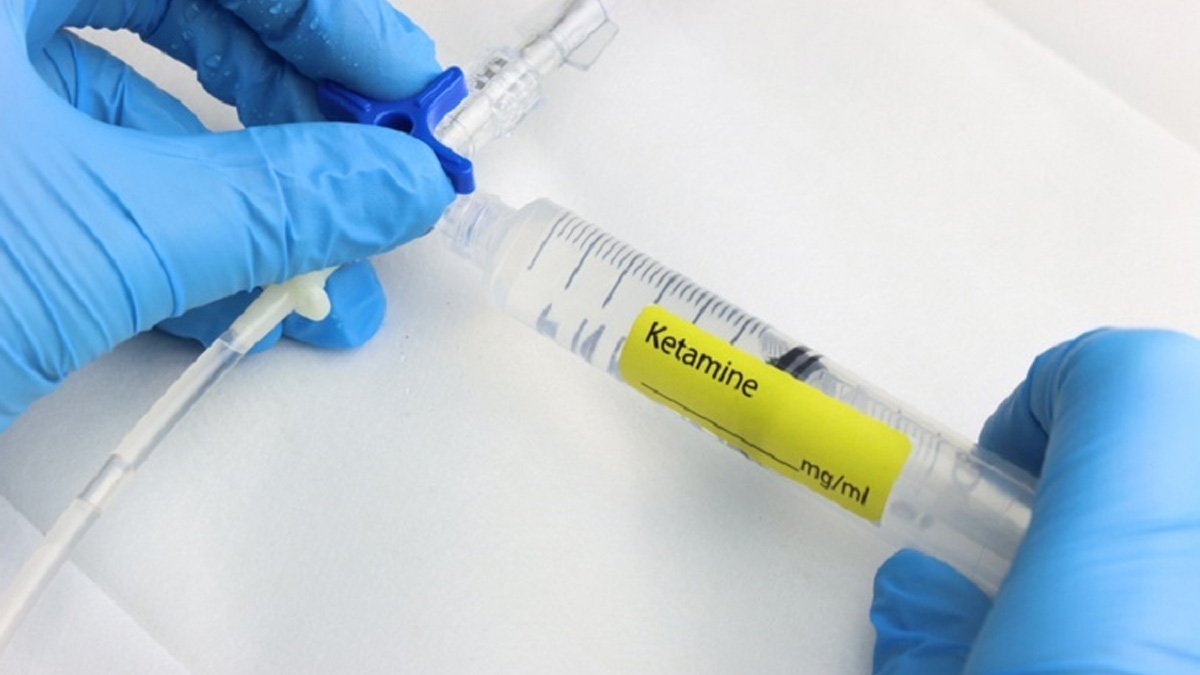
Tech entrepreneur Bryan Johnson is known for his extreme self-experimentation in the pursuit of longevity and cognitive enhancement. From plasma transfusions to stem cell therapies, Johnson has explored various cutting-edge medical interventions. However, his latest experiment—injecting himself with ketamine and monitoring his brain activity for 15 days—has sparked controversy and raised questions about the safety of such procedures.
Table of Content:-
Bryan Johnson’s Ketamine Experiment: What Happened?
In a social media post, Johnson detailed his experiment, stating, “I injected the horse tranquilizer ketamine and tracked my brain activity for 15 days. It completely scrambled my brain.” Using Kernel Flow, a brain-computer interface developed by his company, Johnson mapped his neural activity before, during, and after ketamine use.
Initially, his brain followed rigid, predictable patterns. However, after the ketamine injection, he observed that his neural pathways rerouted, likening the process to flights being diverted to smaller airports. By the third day, his brain gradually began returning to its baseline state, which he described as the “therapeutic window.” While Johnson’s experiment provides insights into the brain’s adaptability, experts are raising concerns about the safety of self-administering such a powerful drug.
I injected the horse tranquilizer Ketamine and tracked my brain data for 15 days. It completely scrambled my brain.
— Bryan Johnson /dd (@bryan_johnson) February 18, 2025
In a world-first we answered the question ‘what happens to the brain before, during, and after ketamine treatment?’ We also discovered how long it took for my… pic.twitter.com/UFcS0Bumhn
What Is Ketamine and How Does It Work?
Ketamine has been used for decades in medical settings as an anesthetic and pain reliever. More recently, it has gained recognition for its rapid antidepressant effects, particularly in individuals with treatment-resistant depression. Depending on the dosage, ketamine produces different effects:
- Medically prescribed doses – Acts as an anesthetic, numbing pain and inducing temporary dissociation.
- Low doses – May cause mild euphoria, relaxation, and altered perception of time.
Also Read: Viral Surge In Delhi-NCR: Over Half Of Households Affected, Survey Reveals
- High doses – Can lead to hallucinations, dissociation, memory impairment, and increased heart rate.
- Excessive or prolonged use – Poses severe risks, including cognitive impairment, addiction, bladder dysfunction, and psychiatric disorders.
Research suggests that ketamine’s antidepressant effects stem from its ability to promote neuroplasticity—enhancing the brain’s ability to form new connections and pathways. However, the long-term effects of repeated use remain a subject of ongoing investigation.

Is Injecting Ketamine Into the Brain Safe?
Directly injecting ketamine into the brain is highly dangerous. Medical professionals warn that such an approach could cause severe neurological damage, psychotic episodes, and permanent cognitive impairment. Additionally, ketamine significantly affects blood pressure and heart rate, which can be life-threatening for individuals with cardiovascular conditions.
Also Read: Nipah Virus Alert: Kerala Strengthens Precautions As Bat Breeding Season Approaches
While ketamine therapy has shown promise under controlled medical supervision, reckless self-experimentation is fraught with risks. Experts caution that certain individuals should avoid ketamine altogether, including:
- Those with a history of substance abuse or addiction
- Individuals with schizophrenia or severe psychiatric disorders
- People with heart disease or high blood pressure
- Those with chronic bladder or kidney issues
- Pregnant women and children (unless medically necessary and supervised)

The Ethical and Medical Concerns of Self-Experimentation
Johnson’s self-experimentation highlights the growing interest in neuroplasticity and cognitive enhancement. However, medical experts emphasise that conducting such experiments outside of clinical settings poses significant dangers.
Ketamine-assisted therapy is an evolving field, and while it offers potential benefits for mental health treatment, it should only be administered under medical supervision. Experts stress the need for continued research before integrating such treatments into mainstream longevity practices.
Bottomline
Bryan Johnson’s experiment has reignited debates on the ethics and risks of radical self-experimentation. While his findings may contribute to scientific discussions on brain function and neuroplasticity, the dangers of self-administering ketamine cannot be overlooked. Those interested in cognitive enhancement or alternative depression treatments should seek professional medical guidance rather than attempting risky procedures on their own.
Also watch this video
How we keep this article up to date:
We work with experts and keep a close eye on the latest in health and wellness. Whenever there is a new research or helpful information, we update our articles with accurate and useful advice.
Current Version
